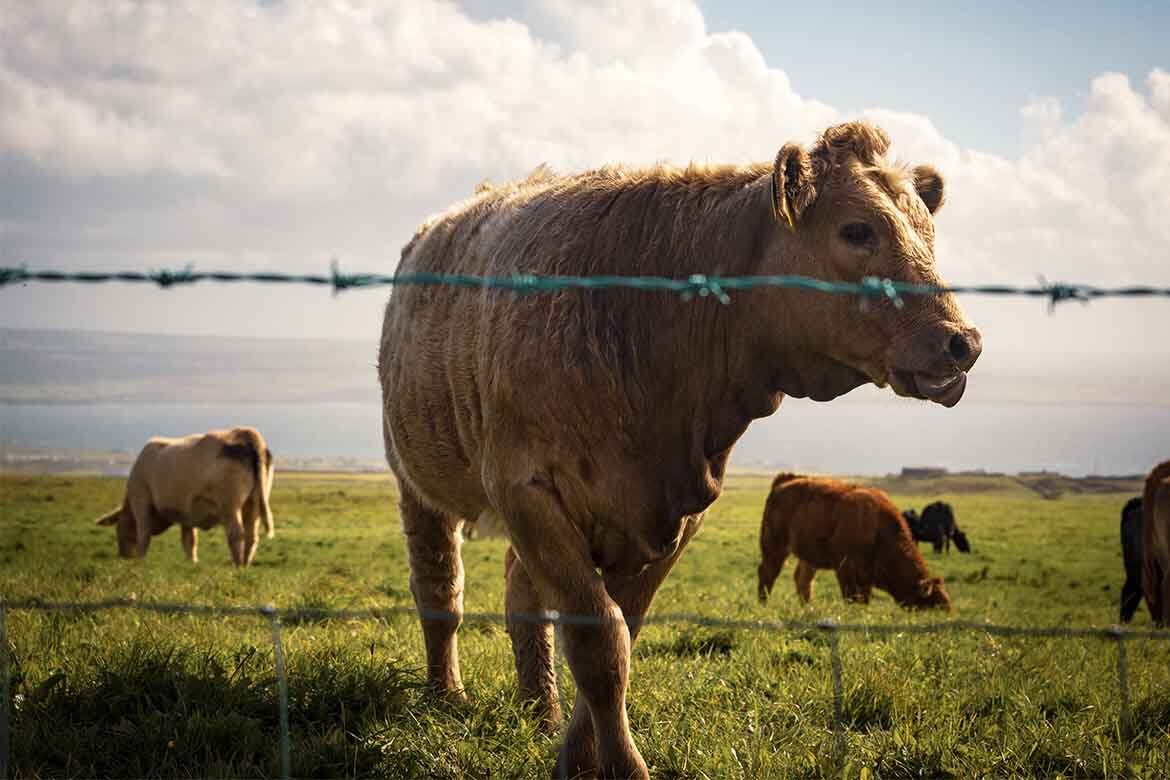As debate rages with regards to emission reduction targets, President of the Irish Natura & Hill Farmers Association (INHFA), Vincent Roddy, has written an open letter to Minister for Environment, Climate and Communications, Eamon Ryan.
Roddy highlights the farming organisation’s role representing thousands of members in rural communities in response to proposals agreed by Government to see a reduction in Green House Gas (GHG) emissions for agriculture of between 22 and 30%.
He writes: “In driving this narrative, the finger of blame is being pointed at farmers who are understandably quite annoyed at the divisive manner in which the debate is being conducted. Moreover, we should all recognise that the targets set for each sector were decided on by the Government and Oireachtas without any consultation. It is very wrong to blame the farming community for targets they never agreed to and never got the opportunity to engage on.”
Roddy calls for due consideration with regards to key factors before reductions can be discussed.
Here are his key points:
• In calculating our agricultural emissions, the carbon balance for the production of that food is applied as part of Ireland’s GHG emissions. However, oil or oil by-products such as diesel, petrol or home heating oil which are imported into the country are also applied as part of Ireland’s GHG emissions. How is this acceptable? To, us it seems reasonable that any calculation of GHG emissions should choose between consumption or production – unfortunately we are being hit on the double. For Ireland where we export 85% of our agricultural products and other major exporting countries such as New Zealand and the Netherlands, this is a major concern.
• When deciding on these calculations did countries with higher population densities push to have this methodology applied? Why has the Intergovernmental Panel on Climate Change (IPCC) accepted this model when clearly it is unjust? How does this model reduce food waste which is a major contributor to GHG emissions and should be a global priority in any discussion around climate change? Finally, why did Ireland accept this when it discriminates against us?
• In deciding on the sectoral targets, it is a major mistake to separate agriculture from land use. In doing this, you immediately reduced options to farmers to off-set their GHG emissions. This is totally unacceptable and must be revisited. Currently, we see large corporations and some of our multiples making the claim they are carbon neutral or going carbon neutral. This is based on their ability to off-set GHG emissions most probably through a land use strategy while farmers with a major land base are denied this opportunity. How can you stand over this?
• When striving to deliver improved environmental outcomes it is vital that we recognise the benefits of extensive grazing systems. In a report published in 2018 by the EU Commission titled ‘Grazing for Carbon’ these benefits were clearly outlined as detailed in the Executive Summary where it stated that “A quick literature review showed that there is net C sequestration within grassland systems in general, but in a mixed grazing and cutting system there is less carbon sequestration than under pure grazing.” Based on this and the overall report, sustainable grazing as practised through extensive farming systems by many of our suckler and sheep farmers will not only deliver an end product in terms of beef but will also deliver in terms of carbon sequestration. In addition, these farming systems are low in terms of chemical fertiliser input and organic manure all of which benefit the overall environment.
• When calculating our GHG emissions Ireland has favoured the IPCC model as opposed to the Life Cycle Assessment (LCA). By choosing this model we are undermining grass-fed and our naturally reared suckler systems, a fact that is acknowledged by research conducted by Teagasc. In a paper titled ‘Evaluation of the effect of accounting method, IPCC vs LCA, on grass-based and confinement dairy systems’ greenhouse gas emissions’ the LCA method calculated that the grass-based system saw significantly lower emissions levels and contradicted the IPCC method that calculated lower emissions from the confinement system. However, the LCA approach was identified in this paper “as the preferred approach to assess the effect of management changes on GHG emissions.”
• Before we proceed with any recommendations it is vital that we reassess the calculation models and the decision to use the IPCC model when Teagasc research has indicated that the LCA model is a better option.
• With regard to current discussions around GHG emissions and in particular methane we have seen how two groups of academics giving scientific evidence to a recent Oireachtas hearing on methane, were not in agreement with each other’s calculation methods. Based on the Oireachtas discussion, it is quite clear that the science is still evolving. It is also worth noting that in 2005 Ireland’s Beef industry was closed down based on facts that were subsequently found to be inaccurate. We cannot afford to see something similar happening again.
Roddy goes on to say: “In striving to play our part in addressing the challenge posed by climate change it is vital that you as Minister and the Government apply equal measures to all sectors of the economy. In the last number of weeks, you have clearly failed to do this and instead of becoming a unifying force you have become a divisive one. Farmers are very angry on this issue but also very informed – not just with regard to what is happening in Ireland but further afield. Unless you want a situation like there is in the Netherlands, I would advise you to pull back and ensure your Government commences a constructive engagement with the farming community and their representatives.”

